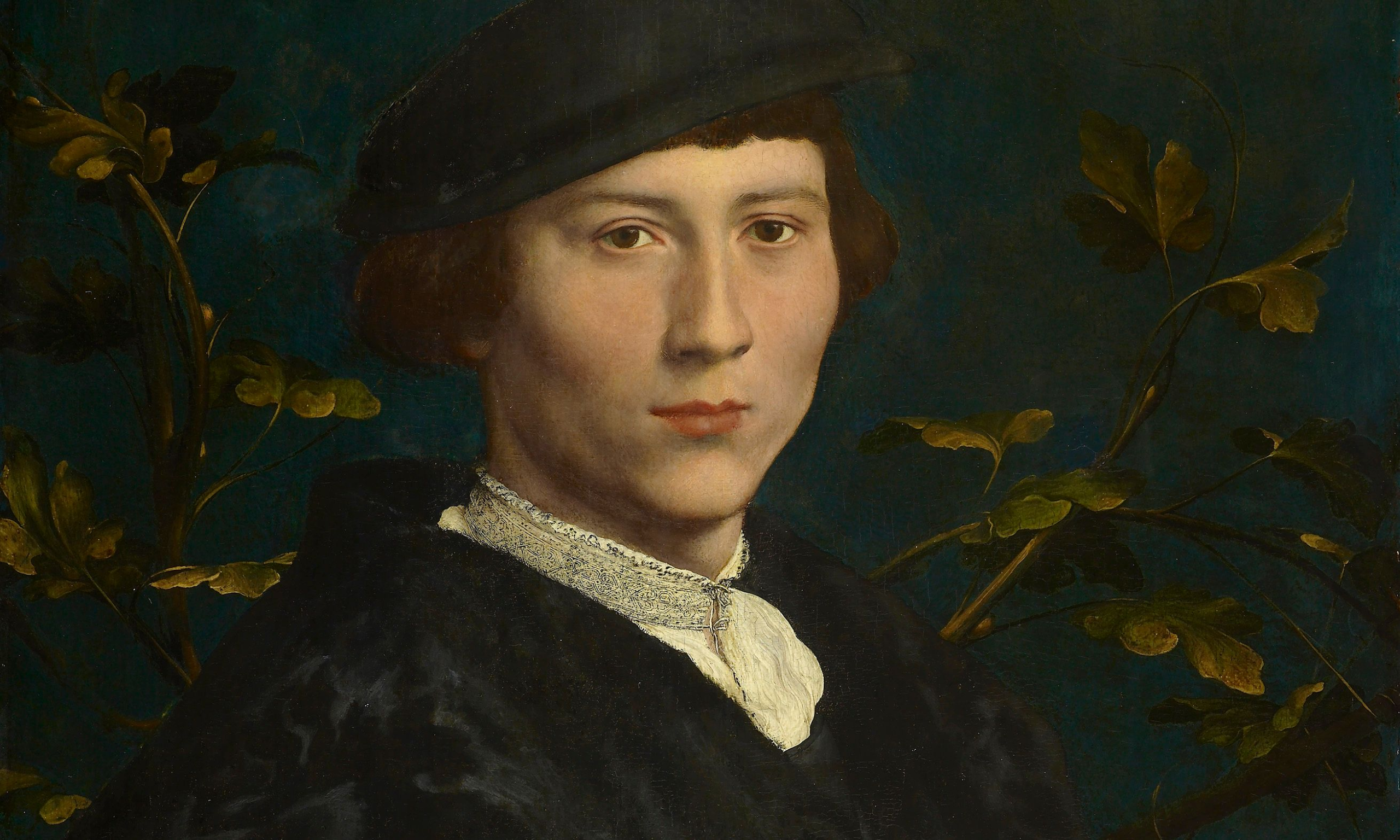Hans Holbein the Younger, Derich Born (1533)
Young Derich Born’s cheek bones were not always sharp enough to peel apples: new research and conservation work on the 1533 portrait by Hans Holbein the Younger, has revealed that the painter made repeated small changes, each time giving Born even more chiselled features.
The dazzling result bears an inscription on the parapet under Born’s arm, presumably composed by Holbein—lifted from a near identical tribute to Albrecht Dürer, which translated boasts “if you added a voice, this would be Derich his very self. You would be in doubt whether the painter or his father made him”.
The painting, newly conserved after work at the Paul Getty museum in California, was once owned by Charles I, and bought back by Charles II as he tried to reassemble the royal collection scattered under Oliver Cromwell. It will now star in an exhibition at the Queen’s Gallery in Buckingham Palace (until 14 April 2024), tracing the work in England of the German-born Holbein, and his rise to become the favourite artist of the Tudor court.
Born was not royal but a German merchant in the Steelyard in London, the Thames-side headquarters of the powerful Hanseatic League—at least seven of whom commissioned portraits from Holbein, two now surviving in the Royal Collection. Born was just 23 when he commissioned his portrait, and was evidently as arrogant as his features. He was expelled from England in 1541 after getting into an unwise dispute with the powerful Duke of Suffolk, and according to the show's curator Kate Heard was still grumbling about it a decade later.
Nicola Christie, the head of painting conservation at the Royal Collection, says she was concerned about the condition of the painting when the Getty requested a loan for its own Holbein exhibition, Capturing Character in the Renaissance. The wealthy institution promptly offered to bring her to California for months of work with the assistance of its laboratories and squad of scientists. The exhibition was delayed to 2021 by the Covid pandemic, so the painting was shown before conservation and her work was done afterwards. The results, including gentle cleaning revealing the subtlety of Holbein’s treatment of the textures of black satin and fur, will be seen for the first time in the London exhibition.
The portrait was made on two planks of Baltic oak, with the seam running vertically through Born’s face. Christie discovered that centuries ago the splitting sections were separated and glued together slightly misaligned, leaving a visible ridge which was filled and overpainted.
Christie says it was impossible to contemplate separating the boards again, “I’m here to tell you that it is extremely well stuck together, they knew what they were doing in the 18th century.” But she succeeded in removing filler revealing original surface, and has painted in some of the losses. “It was a long long task working under a microscope, and quite terrifying, but one of the delights was finding original paint beneath these old layers.”
An X-ray image of Holbein's portrait of Derich Born
The analysis, including X-ray fluorescence spectroscopy and gas-chromatography-mass spectrometry, has identified the different layers and pigments Holbein used building up the portrait, from the grey ground, through thin layers of paint for Born’s face and opulent outfit (intense black was luxury clothing using the most expensive dyes) and finally the azurite background. The x-rays showed that Holbein made several adjustments to the face, shoulder and hat, giving Born more sculpted features.
No preparatory drawing survives for the portrait, but it will be shown with 40 of Holbein’s most beautiful drawings from the Royal Collection, including studies of Henry VIII, his children, the future monarchs Mary and Edward, and several wives including Anne Boleyn and Jane Seymour.
Born vanishes from history after trading a consignment of towels in Antwerp in 1549, but Heard has found no evidence that he died young. “It’s just a question of which records survive—he may have lived a long prosperous life, still grumbling about being kicked out of England.”
• Holbein at the Tudor Court, the Queen’s Gallery, Buckingham Palace, London, 10 November-14 April 2024

